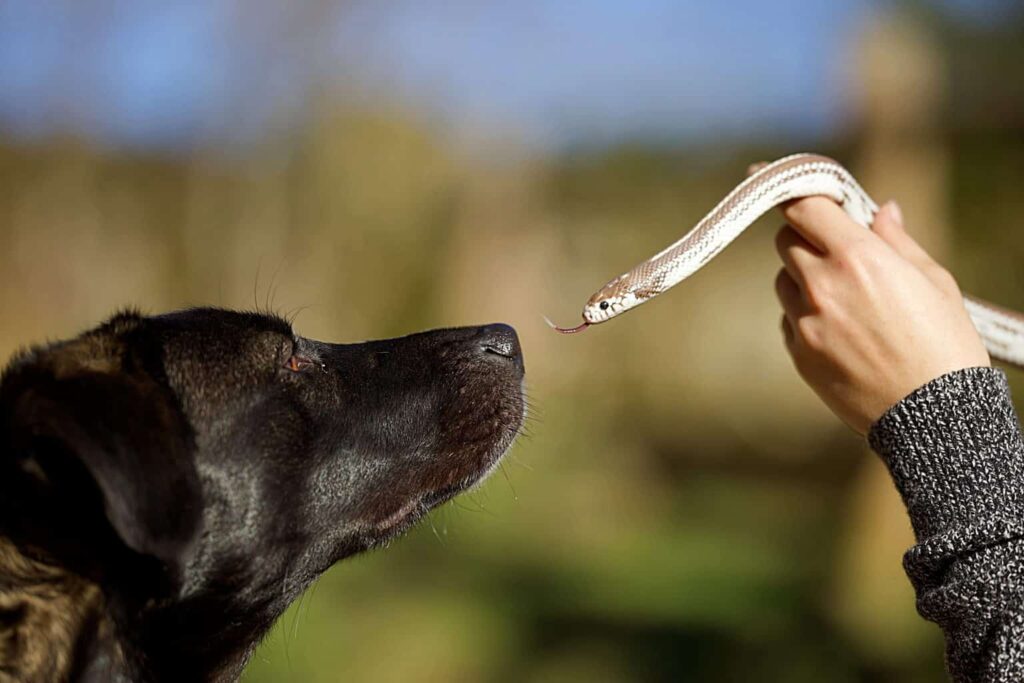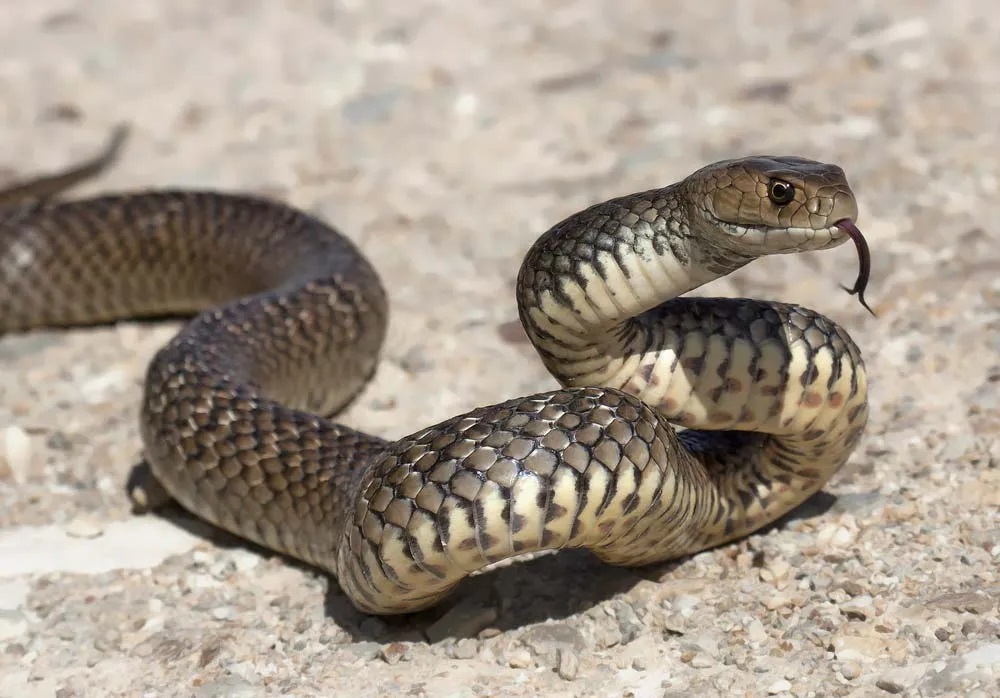Spring is certainly here and with the weather getting warmer we are beginning to see a rise in snake activity! That being said, we have already seen our first case for the season, so we thought it best to remind our wonderful clients and beyond the importance of staying vigilant.
What can we do to reduce the activity of snakes in our yards?
- Keeping grass cut short
- Avoid piles of leaves or materials such as tin and firewood
- Keeping your shed enclosed
- Sandpits or cubby houses clean and clear
- Keeping pets food and water bowls inside
- Avoiding anything that attracts rodents such as rats and mice
What do I do if I find a snake on my property?
If you come across a snake on your property the best thing to do is simply, leave it alone! They tend to move on by themselves. Do not attempt to remove the snake yourself, this will increase your chances of getting bitten. It is important to remember that a snake will not strike unless they feel threatened.
Instead, ensure all pets and children are accounted for and are safely inside to avoid contact and let the snake move on by itself or you can call a
professional snake catcher to safely remove it from your property.
How to I keep my pets safe from snake bites?
- Building cat / dog enclosures
- Keeping them inside when you aren’t home
- Keeping a close eye on them when you are home
- There are snake avoidance courses you can do with your dogs
- If you hear or see your dog barking at something, call them to you and safely and carefully investigate.

What are the signs and symptoms of a snake bite?
Dogs and cats are most often bitten around the head and limbs, while horses are typically bitten on the face or muzzle. With some bites you may notice fang marks or swelling around the area.
Usually, the closer the bite is to the heart, the quicker the venom will be absorbed into the animal’s system and distributed around the body, for this reason knowing the signs of a snake bite is essential.
- Sudden weakness followed by collapse
- Trembling, shaking or twitching of the muscles and difficulty blinking
- Drooling
- Vomiting
- Loss of bladder and bowel control
- Dilated pupils
- Difficulty breathing
- Paralysis
- Blood in urine
- Horses can also have bleeding from the mouth or nose, colic signs and a wobbly gait
What do I do if my pet has been bitten?
If you have seen your pet be bitten or believe they have been bitten its extremely important to seek
immediate veterinary attention, on some occasions animals can return to ‘normal’ after an initial
collapse, however this is only a temporary recovery and they will become unwell quite quickly. If you suspect your pet has been bitten, please call your vet immediately.
Restrict movement:
Immobilise and keep them as still and quiet as possible to slow down the spread of venom through their bloodstream.
Identify the snake:
If it’s safe, try to identify the snake without putting yourself at risk, knowing the species can aid in treatment. A photo of the snake or even a thorough description can be of great assistance.
Apply a firm bandage to the site:
If you have bandage material available to you, quickly apply a firm bandage above, below, and over the site of the bite. This helps to slow the venom from spreading to the heart. Avoid using a tourniquet or cutting the bite area, as this can lead to more harm than good.
Always call ahead
While most clinics will have antivenom in stock we recommend always call before making the trip in, this way not only can the team be prepared for your pet’s arrival but can make sure they have to appropriate antivenom in stock.
The team will perform a coagulation test to confirm if a bite has occurred. This test helps determine the severity of envenomation and will guide the treatment plan, if the test confirms a snake bite, your pet will require antivenom, pain relief, and supportive care.
If you have any questions regarding snake prevention and bites, or if you are concerned your pet has been bitten, please don’t hesitate to contact Cameron Veterinary Services on 8318 1801.



